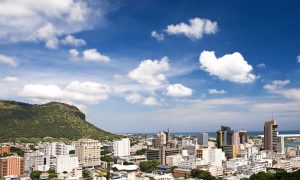Share this article
Be the first to know about our new projects.
2Futures has many new luxury projects in the pipeline. Get notified before the public when there’s a new launch. Benefit from early bird specials.
The Freeport Zone is the most logical choice for export-oriented entrepreneurs moving toMauritius. Established in 1992, the multi-site Mauritius Freeport provides logistics, distribution, and duty-free marketing hubs for the African region.
Two of the three Freeport sites are near the port area at Mer Rouge, Port Louis, while the third is at the vicinity of the SSR International Airport, Plaisance. The built-up Freeport space has increased from 5,000 square metres in 1993 to 300,000 square metres in 2018.
This dramatic expansion reflects the heightened economic activities in the Freeport. In the five-year period from 2013 to 2018, trade value in the zone rose to MUR44 billion from MUR23 billion. Trade volume in the same period rose to 542,000 tons from 347,000.
More than 240 operators have seen it wise to invest in Mauritius and its Freeport. They invested nearly MUR7 billion in the zone since it was established. It also employs around 3,500 workers.

It’s easy to see why the Freeport Zone has attracted so much investment and resources. Mauritius isn’t only regarded as a gateway to Africa. Notably, the country is also known for its location in the “golden triangle” linking Africa, Asia, and Australia. For the African market alone, the Freeport opens cost-effective access to 425 million potential consumers.
There are many incentives tempting export-oriented entrepreneurs to invest in Mauritius’s Freeport. The government allows Freeport ventures that are 100 per cent foreign-owned. It also allows free repatriation of the profits that these foreign operators earn.
The exporters in the Freeport likewise enjoy a 50 percent reduction in port dues and handling charges. The zone, moreover, provides modern and integrated logistics facilities.
There are also tax perks for export-oriented entrepreneurs to invest in Mauritius’s Freeport. These include exemptions from corporate tax and customs duties on all goods imported into the zone. The government also exempts export companies in the zone from land transfer tax on the acquisition of immovable property.
Freeport operators get preferential access in African markets. This results from Mauritius’s tax and trade treaties with many African countries and the country’s membership in COMESA and SADC.
The Freeport Zone is open to companies that engage in the following activities:
Separately, companies outside of the Freeport can avail of the exhibit and conference facilities at the zone’s Port Louis site. This thereby makes the Freezone a display window for yet other entrepreneurs’ conduits.
Simple steps for foreign entrepreneurs to invest in Mauritius
Where it’s safe to invest: new Mauritius real estate projects